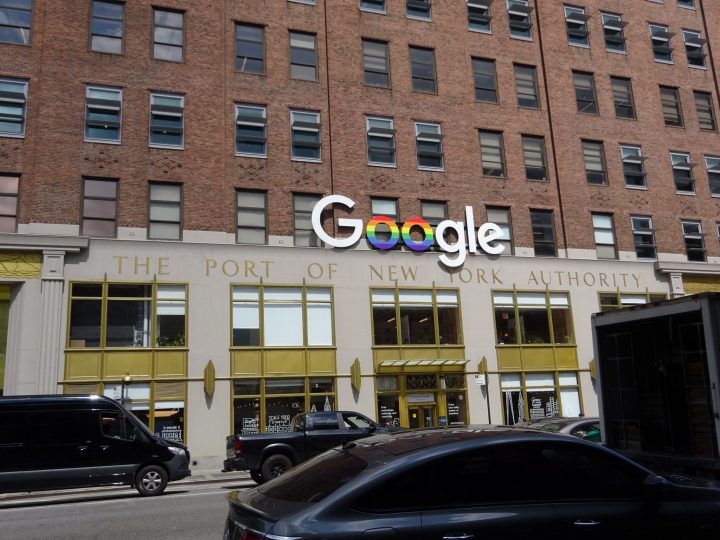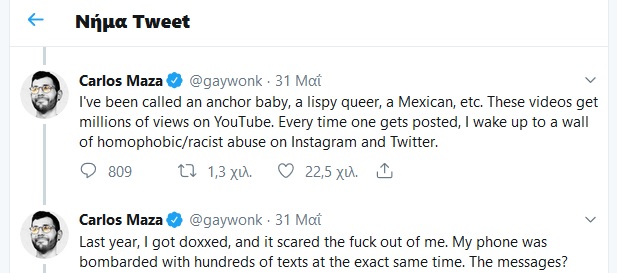What is happening with capitalism today, globally, is extremely interesting: we believe that we are enjoy individual freedoms, precisely when we are been watched more than ever before. Dozens of sites highlight personal information. The digital world has become tailor made to each one of us in order to achieve the best possible sales of “whatever we really need”. What are the means to achieve that? Digital algorithms, and personal conversations, with which we feed the companies generously. Just a single photo in Instagram gives extraordinary information which is automatically translated into a sales policy.
The Wikileaks team has publicly released eight and a half thousand secret documents from CIA sources. One of their revelations was a project known as Weeping Angel. Samsung, in 2015, manufactured smart TV sets that while on standby, do not sleep but record conversations, which are accordingly sent to the CIA and MI5 via the Internet and a hidden server. When the issue became known, the South Korean company merely stated: “Protecting the privacy of our customers and the security of our devices are high priorities for Samsung. We have learned about the leaked report and we’re looking into the issue.”
Shortly after, came the revelations from Christopher Wylie, a public interest whistle blower, who revealed the way Cambridge Analytica worked with Facebook during the election campaign of the current President of America, Donald Trump. Wylie spoke about the sale of 50 million Facebook users’ personal data to CA in order to influence them during the US presidential elections in 2016. How could this influence be achieved? Through the production of massive, but also targeted, fake news.
The term “Surveillance Capitalism” belongs to a retired professor from Harvard Business School, Shoshana Zuboff. She introduces it to the general public inher book “The Age of Surveillance Capitalism: The Fight for a Human Future at the New Frontier of Power,” using the monumental phrase: you are not searching through google, google is searching through you. How can we be protected from this, asks the Democracy Now! reporter? And Zuboff replies: “There are 16 responses on my list. But some are very important: The first concerns the size of our ignorance. A key to this methodology is that all this is done secretly. The digital systems that support this policy are designed to override our right to say Yes or No. We are stealing our right to fight this policy. If we want to defend ourselves, we need to understand what exactly is happening. Understanding is power. To name what is happening is also power. Once we understand that we are dealing with economic logic rather than digital technology, we go to the second point: we need to think about ways to democratize our institutions that allow these practices.” Watch the full video:
First Google, then Facebook, Microsoft, and other companies have created and exploited this economic logic and are organizations that know everything about us, while we know very little about them.
Are there any choices?
A click is a simple move that we do tens or hundreds of times daily depending on our job and interests. We need the necessary value to this simple movement.
- A first important step is to start making (at least in parallel) use of search engine alternatives. Here is an interesting list. If by using these search engines, we can not find what we are looking for but we finally manage to do so through different channels, we share the knowledge with other users so as to help avoiding to go back to Google’s search engine.
- In order to avoid devices that have Microsoft, there are possibilities to change software and there are independent organizations that can help us do so. It is very important to know that there are also socially oriented companies that create mobile, USB, computers and laptops using an independent mindset.
- A previous article published in Pressenza referred to alternative suggestions from YouTube, Vimeo and DailyMotion.
- Many interesting companies offer safer hosting to create personal or corporate mail accounts others than google or yahoo.
- Finally, some public interest entities, such as communities and municipalities – and here once again we have the city of Barcelona leading the way – are using an open collaborative platform to consult with their residents. In this way the city not only exercises consultation that is very important for the democratization of institutions, but this is tested through an open-source platform that helps to cultivate the open culture.
A political decision
Do we want to do our job or have fun by serving the giants of Wall Street? If not, it is a political decision that has a cost, but also has benefits. Weighing them up and making an internal and public admission, is exactly the point from where a personal “liberation” plan can begin. What is this admission? before starting speculating on our data, they have made us addicts to this way of exposure and communication. But it seems that the flow of people who recognize the situation, make decisions and apply liberation steps, is growing daily.







